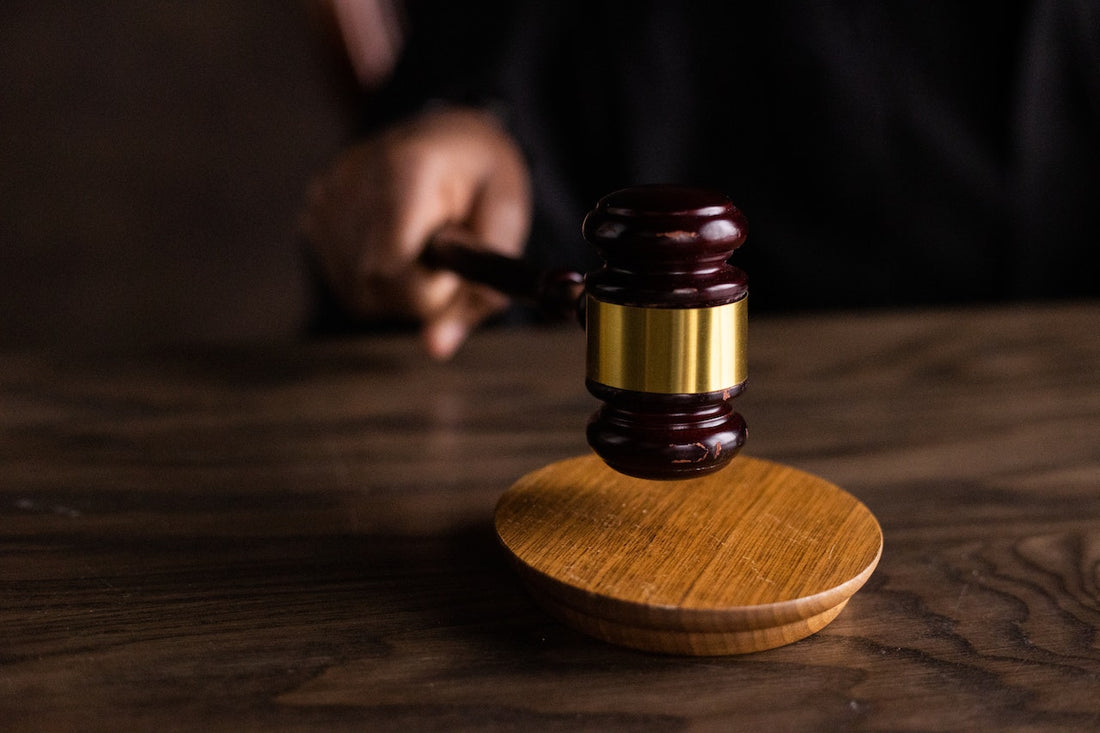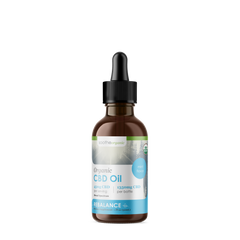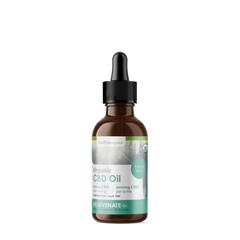In today's fast-paced world, traveling is integral to our lives. Whether for business or pleasure, the excitement of exploring new destinations is often accompanied by the inevitable stress of packing, navigating unfamiliar places, and adapting to different cultures.
Many people have discovered the potential benefits of CBD products as a natural solution for supporting their health and overall well-being. Non-intoxicating and derived from the cannabis plant, CBD can be an attractive option for those seeking holistic remedies.
However, the legal landscape surrounding CBD is constantly evolving and can be challenging to navigate. As more countries and states adopt their own regulations governing the use, sale, and transportation of cannabis-derived products, understanding these rules becomes critical for travelers wishing to bring CBD along on their journeys.
So buckle up and join us as we explore the intricate world of CBD-related travel restrictions. With this knowledge in hand, you'll be better equipped to safely and confidently incorporate CBD into your journey – allowing you to focus on experiencing new adventures without the added worry.
Understanding the Difference Between CBD and THC
First and foremost, before traveling with CBD products, be it CBD gummies, CBD topicals, or CBD tinctures, it's crucial to know the differences between CBD and THC. Both compounds belong to a group of chemical substances known as cannabinoids, which are naturally occurring in cannabis plants. While these two cannabinoids share some similarities, they exhibit distinct differences in their effects on the human body.
THC (tetrahydrocannabinol) is perhaps the most well-known cannabinoid due to its intoxicating properties, which induce the euphoric sensation or "high" commonly associated with marijuana consumption.
This mind-altering effect occurs when THC binds to cannabinoid receptors in the brain, resulting in temporary changes in mood, perception, and behavior.
In contrast, CBD (cannabidiol) is non-intoxicating and does not produce the effects associated with THC. Instead, CBD is often praised for its potential therapeutic benefits, which may include encouraging a healthy inflammatory response, supporting a good night’s sleep, and promoting relaxation.
There are three main types of CBD: full-spectrum, broad-spectrum CBD oil, and broad spectrum CBD softgels isolate. Full-spectrum CBD products can contain up to 0.3%, which on the one hand, is nowhere near enough to cause intoxication, but on the other, some countries may not allow products that contain even such trace amounts.
Broad-spectrum CBD has had the THC removed, and CBD isolate contains no compounds other than CBD. When traveling, products containing these two types of CBD may be the best and safest option.
US Federal Law & The 2018 Farm Bill
The 2018 Farm Bill, officially known as the Agriculture Improvement Act of 2018, marked a significant milestone in the legalization of USDA organic CBD products in the United States. Under this legislation, industrial hemp – defined as cannabis plants containing less than 0.3% THC – was removed from the Schedule I list of controlled substances, thereby legalizing its cultivation, production, and distribution at the federal level.
As a direct result of this historic bill, CBD oil Wyoming products derived from industrial hemp with a THC concentration below 0.3% are now considered federally legal. This distinction is crucial, as it separates hemp-derived CBD from its marijuana-derived counterpart, which remains a Schedule I substance under federal law due to its higher THC content.
Despite this federal legalization, it's essential for travelers to recognize that individual states retain the authority to regulate the possession, sale, and use of CBD products within their borders.
If you use CBD products on a daily basis and want to travel with them to different states, you’re the person responsible for checking the local laws and obeying them. Remember that in such a case, ignorance of the law is not a valid excuse.
Air Travel and TSA Guidelines
Air travel presents its own unique set of challenges when it comes to transporting CBD, as the Transportation Security Administration (TSA) enforces strict guidelines to ensure passenger safety and compliance with federal regulations.
In recent updates to their guidelines, the TSA has explicitly stated that passengers are permitted to carry FDA-approved medications containing CBD or hemp-derived products with a THC concentration of less than 0.3% in both their carry-on and checked luggage.

However, it is crucial to note that marijuana-derived CBD, which typically contains higher levels of THC, remains illegal under federal law and is therefore prohibited on all flights.
To ensure a smooth and hassle-free experience at airport security checkpoints, travelers carrying CBD products should follow these practices:
1. Clearly label your CBD products. Ensure that your product packaging accurately reflects its contents, including the type of CBD (hemp-derived or marijuana-derived), THC concentration, and any relevant certifications or lab test results that verify its compliance with federal regulations.
2. Follow TSA's liquid restrictions. If your CBD product comes in a liquid form, such as tinctures or oils, make sure it complies with TSA's 3-1-1 rule for carry-on baggage: containers must not exceed 3.4 ounces (100 milliliters) and should be placed in a single quart-sized, clear plastic bag.
3. Bring supporting documentation. If you're using CBD for medical purposes, consider carrying a copy of your prescription or doctor's recommendation letter as additional proof of its legitimacy.
By adhering to these guidelines and staying informed about current TSA regulations, travelers can travel with peace of mind knowing that they are in compliance with federal air travel requirements regarding CBD products.
International Travel Considerations
As the popularity of CBD products continues to grow worldwide, international travelers may be inclined to bring their CBD products, like organic sleep gummies to help with jet lag along on their adventures. However, when venturing beyond the United States, it's essential to be cautious and conduct thorough research regarding each destination country's laws and regulations surrounding CBD.
The legal landscape of cannabis and its derivatives varies significantly from one nation to another, ranging from complete prohibition to varying degrees of decriminalization or legalization.
Some countries impose strict penalties for the possession or use of CBD products, regardless of whether they are intended for medical purposes. For instance, bringing CBD to China is illegal due to concerns that it could be contaminated with THC.
In extreme cases, penalties can include hefty fines, imprisonment, or even deportation.
To mitigate the risks associated with international travel and CBD, consider adopting the following strategies:
1. Research your destination. Before departing on your trip, take the time to investigate the specific laws and regulations governing CBD in each country you plan to visit. Websites for governmental agencies or reputable organizations can be valuable resources for up-to-date information on each nation's stance towards cannabis-derived products.
2. Consult with local authorities. If you're uncertain about a country's regulations or need clarification on specific details, consider reaching out to the appropriate authorities, such as embassies or consulates, and ask for guidance.
3. Consider alternative solutions. If traveling with CBD poses significant risks in your destination country, explore other options for managing your health and well-being needs during your trip. This might include seeking guidance from a healthcare professional about alternative treatments or planning to purchase locally available CBD products that comply with local regulations.
Final Thoughts
As you can see, navigating the legal regulations for traveling with CBD can be a complex endeavor, but with proper research and preparation, it is possible to travel confidently and safely.
Understanding the distinctions between CBD and THC, being well-informed about federal and state laws in the United States, adhering to TSA guidelines for air travel, and considering international regulations will help you make informed decisions about carrying CBD products during your travels.
As the legal landscape continues to evolve, staying up-to-date on these regulations is essential for ensuring a smooth and worry-free travel experience while enjoying the potential benefits of your preferred CBD products.
Hemp-derived CBD Casper, CBD products in Casper, Best CBD shop Casper, CBD capsules Casper Wyoming, Casper CBD hemp products, CBD for sale Casper, Wyoming Weed Laws, CBD Sports Cream, CBD Casper WY, CBD Cheyenne, Can you buy cbd oil in Wyoming, CBD Wyoming, thcv gummies effects, Best cbd for dogs, CBD Drinks, Buy cbd drinks online, broad spectrum CBD oil, USDA organic CBD, gummies for sleep, best CBD oil for pain, CBD softgels 25mg, best CBD oil for dogs, delta 9 gummies near me, CBD oil Wyoming






